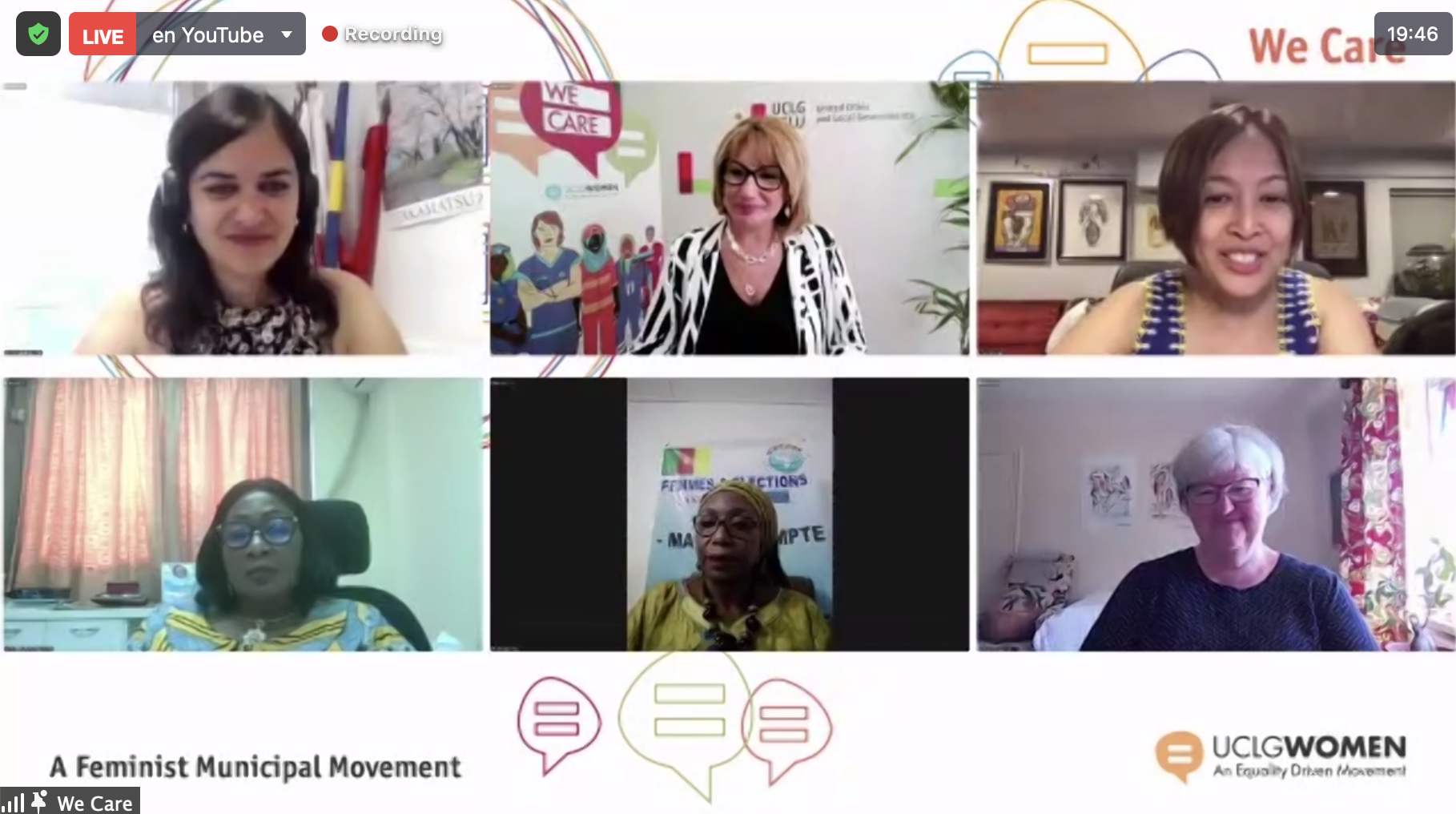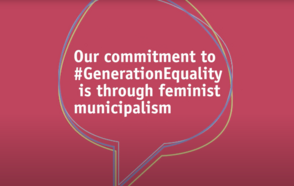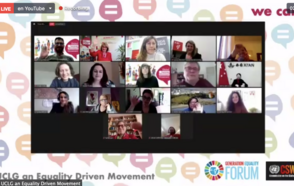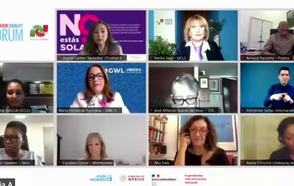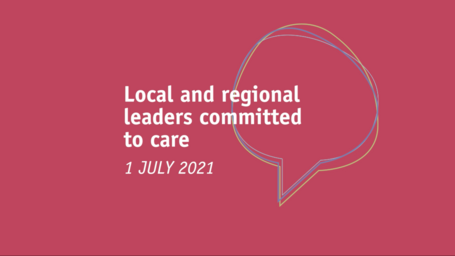
Last 30 June – 2 July the international community and gender equality advocates gathered at the Generation Equality Forum in Paris. The historical event marked the conclusion of a two-year multi-stakeholder process to mobilize commitments and investments 25 years after the Beijing World Conference on Women.
At a critical juncture when the COVID-19 pandemic exposed vulnerabilities and the disproportionate impact of crisis on women and girls, the Generation Equality Forum provides an actionable framework to make progress and revert pushbacks to gender equality. At the conclusion of the Forum, nearly USD 40 Billion were announced as investments through different policy and programme commitments from a varied list of actors, including local and regional governments.
During the occasion, UCLG organized the Local and Regional Governments Day - Feminist Municipal Movement on July 1st, underscoring the importance of the constituency to foster the participation and leadership of women and girls at the local level. Throughout two sessions, it was emphasized the unique relevance of local and regional governments to undertake commitments and contribute to the localization of the 5-year Global Acceleration Plan, one of the main outcomes of the Forum in Paris.
Session 1
At the session “Local and regional leaders committed to care”, Emilia Saiz, UCLG Secretary General reminded that “Improving the participation of women will also change the quality of the policies we make and will shift the priorities, identify new essentials, putting care at the center”. Towards a new social contract our constituency was mandated to develop, feminist is considered as a fundamental aspect of the people axis, based on a new model to go forward in cities, based on empathy, proximities and enhanced local public service provision. A agenda that seeks improved livelihoods and wellbeing of women, girls, boys, men and all people.
Referring to the relevant service cities and territories can provide to assist women and girls, for example dedicated help lines to assist women who experience domestic violence, Carolina Cosse, Mayor of Montevideo and UCLG Vice-President for Latin America stated that “Feminisms and movements focused on diversity are the hope for humanity. They enable a different perspective of ourselves, showing that another way of leading and relating to each other is possible”. Marta Suplicy, Secretary of International Relations of São Paulo and founding president of UCLG recalls “Cities are closest to people’s lives and can be more gender-responsive. The experience we share today can determine the next level of commitment towards equality for the coming years”.
Regarding the COVID-19 crisis, María Fernanda Espinosa, UCLG-UBUNTU Advisor and Former President of the United Nations General Assembly highlights that “recovery from the pandemic must be rooted in equality in order to be inclusive and sustainable. The municipal movement must be at the heart of this equality recovery.”
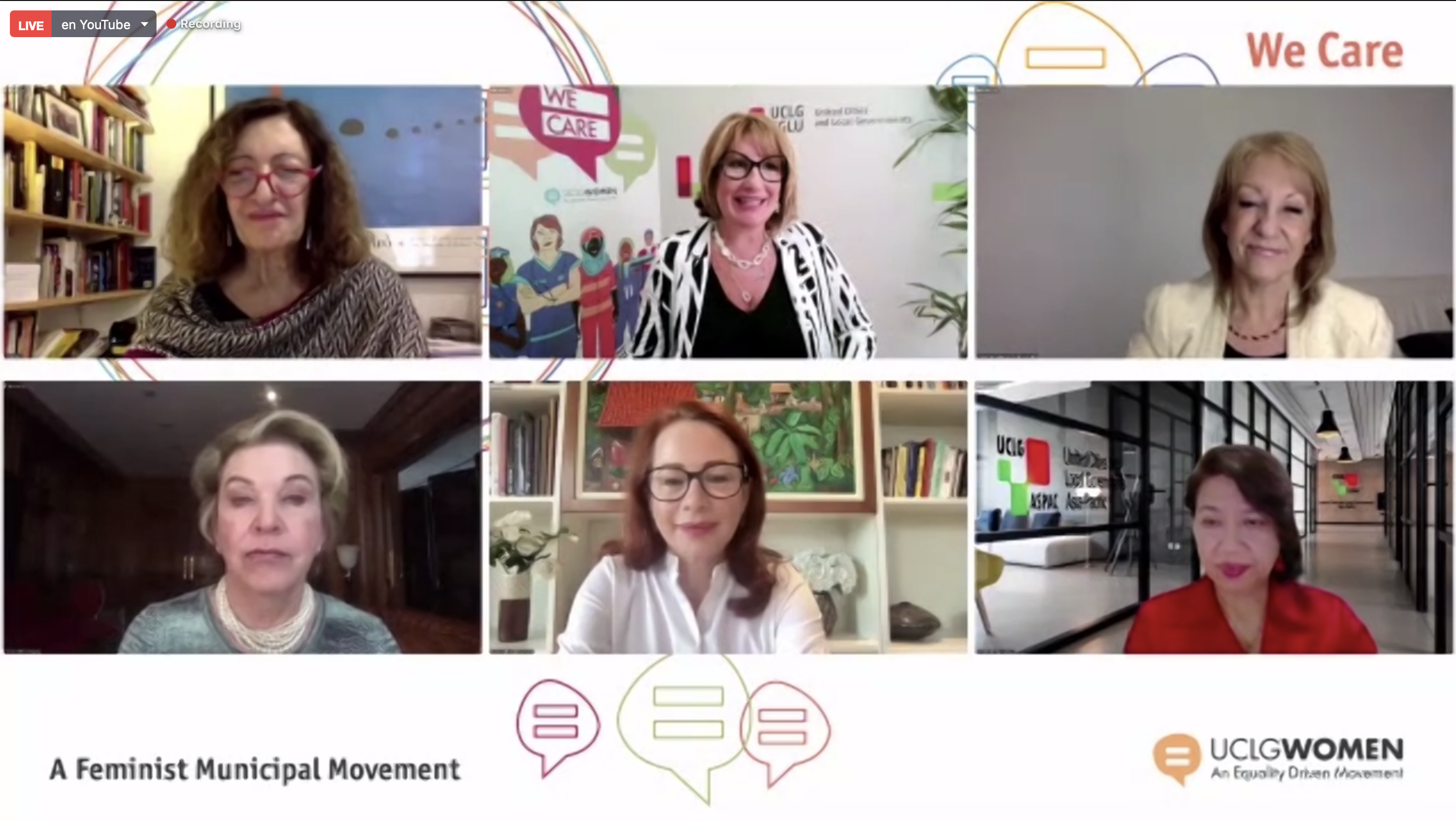
At the session, it was also launched the publication “The Transformative Commitment of Cities and Territories to Generation Equality - A Global Feminist Municipal Movement”, which lays down the roadmap and commitment of the constituency announced in Paris. Lead author Ana Falu, UCLG-UBUNTU Advisor on Gender, explained the importance of local women leaders’ trajectory, as the “Personal is Political” and call for continuing to “make progress in dismantling stereotypes, consolidating rights, breaking with the glass ceiling and the sticky floor”.
Women political representation and rights was emphasized as a basic principle of democracy and of human rights. Fatimetou Abdel Malick, President of Nouakchott Regional Council, said “It is necessary to ensure the presence of women in the entire economic and development chain. It is a question of justice, duty and efficiency for the society as a whole.” The relevance of engaging men and all people was reminded by many, Bernadia Irawati Tjandradewi. Secretary-General of UCLG ASPAC, celebrated the gathering of women leaders “We have to care for ourselves, believe in ourselves and in others. We already see transformation happening in Asia Pacific, with the participation of women leaders in public life. We have to have a combination of advocacy, capacity building and motivate everybody to make a difference.”
Macoura Dao, Mayor of Foumbolo, President of the Network of African Local Elected Women (REFELA) shared the African Equality Charter is under elaboration and will be presented at the Africities summit. Carola Gunnarsson, Mayor of Sala, Vice-President of the Swedish Association of Local Authorities and Regions, UCLG Vice-President, recalled the 15-year celebration of the European Charter for Equality drawn by CEMR and stressed the importance of role-models “Networks have a responsibility to encourage and support women to participate in local public life, but also to support each other to make the feminist movement”.
Mayors and other leaders from cities and regions explained different challenges faced and the new essentials brought forward by feminist leaders. Abby Binay, Mayor of Makati, listed gender-responsive measures in the city, as the distribution of financial assistance, prompt intervention, shelter for victims of violence and apprehension of abusers, as well as efforts to improve public school, assisting teaches and parents with internet and other facilities. Echoing Makati’s experience, Elise Pereira-Nunes, Vice-Mayor of Tours and president of CUF committee on gender equality, María Eugenia Torres, Gender Director at the provincial government of Azuay, and Anila Noor, Managing Director, New Women Connectors, call for intersectionality and partnership, emphasizing the situation of the most vulnerable and the need to collaborate with LGBTIQ+ persons, migrants and women in rural communities.
Among the local public services, healthcare was reminded as fundamental to secure women’s autonomy and reproductive rights. Atishi Marlena, Delhi MLA, ICLEI Vice President, emphasized "When public healthcare is in decline and access is jeopardized, it is often women who suffer most. Universal healthcare is the best way to ensure men and women can enjoy it equally".
